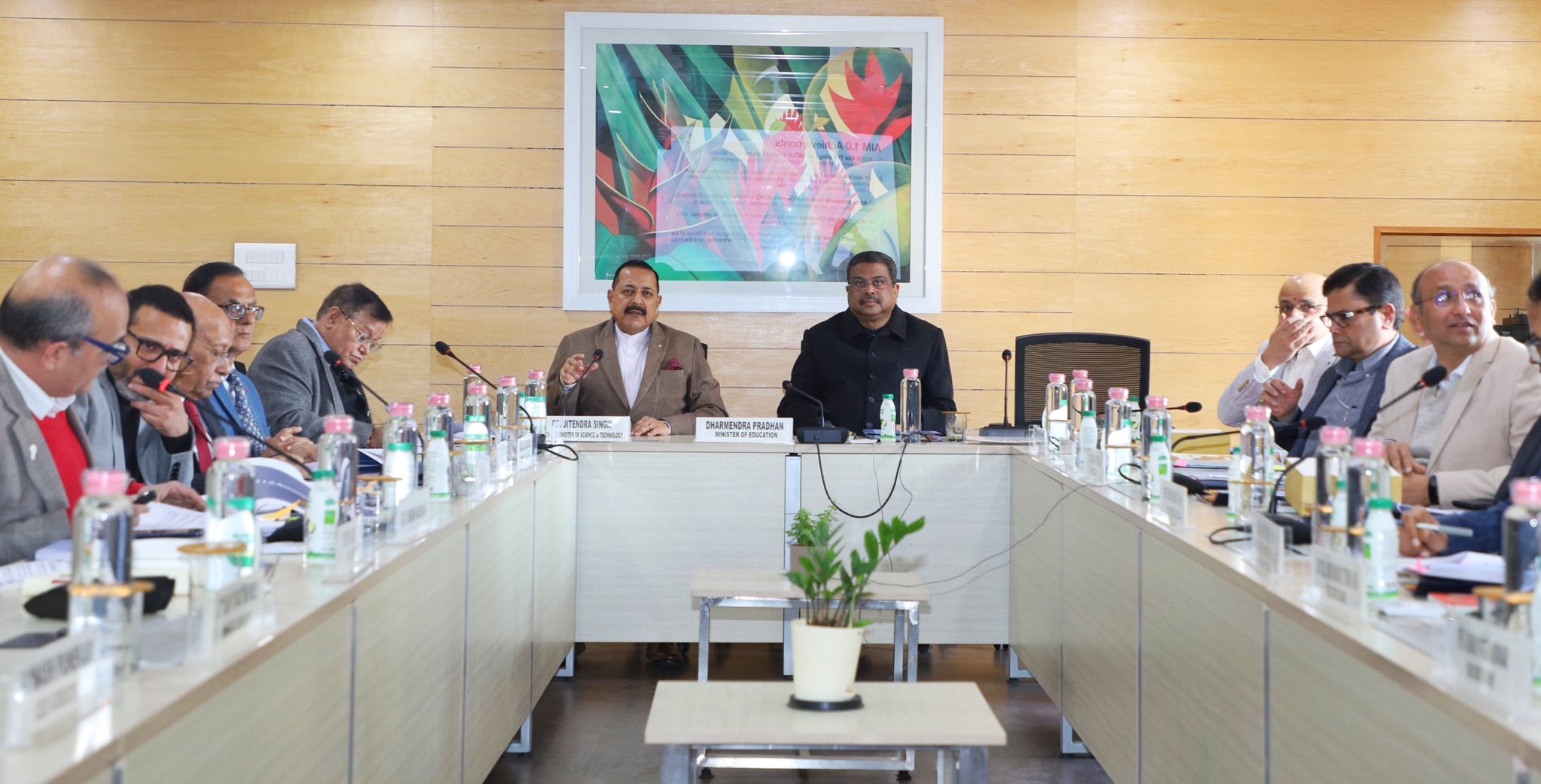Dr. Jitendra Singh Calls for Industry-Govt Collaboration to Bolster Startups and Innovation Ecosystem
During his address, Dr. Singh highlighted AIM 2.0 as a game-changing initiative aimed at enhancing public-private partnerships (PPP) and integrating industry linkages to sustain startups.

- Country:
- India
Union Minister of State (Independent Charge) for Science and Technology; Earth Sciences and Minister of State for PMO, Department of Atomic Energy, Department of Space, Personnel, Public Grievances and Pensions, Dr Jitendra Singh, emphasized the importance of early industry linkage and collaborative funding to ensure the sustainability of startups in India. Speaking at the Atal Innovation Mission (AIM) High-Level Committee Meeting at NITI Aayog, Dr Singh called for a dynamic model where industry and government jointly invest, ensuring mutual accountability and fostering innovation.
Strengthening the Innovation Ecosystem
During his address, Dr. Singh highlighted AIM 2.0 as a game-changing initiative aimed at enhancing public-private partnerships (PPP) and integrating industry linkages to sustain startups. “A joint investment approach nurtures accountability and creates an ecosystem where innovation thrives on shared stakes,” he remarked.
Dr. Singh applauded the achievements under AIM 1.0, crediting the initiative’s success to policies introduced under the leadership of Prime Minister Narendra Modi. These policies have propelled India’s innovation framework, providing a fertile ground for talent and entrepreneurship.
Transitioning to AIM 2.0
As AIM 2.0 transitions into a ministerial framework, Dr. Singh stressed the need for a structure that preserves intellectual and creative independence. He suggested adopting hybrid models, similar to those in the space and biotechnology sectors, to support innovation without imposing restrictive oversight.
He proposed introducing an aspirational framework for evaluating startups based on impact indices such as publication influence, business viability, and livelihood creation. "Innovation must lead to tangible outcomes, particularly in generating livelihoods," he observed, emphasizing the broader societal impact of innovation initiatives.
Inclusive and Global Benchmarks
Dr. Singh also addressed the importance of inclusivity, advocating for a language-neutral approach to innovation. He urged stakeholders to address translation challenges that could hinder participation from diverse linguistic backgrounds. Additionally, he called for Indian researchers to publish in globally renowned journals to enhance international recognition, citing recent breakthroughs in gene therapy as an example of high-standard achievements.
The Path Ahead: AIM 3.0 and Beyond
Envisioning the future, Dr. Singh expressed optimism about AIM’s progressive trajectory. He emphasized the need to strengthen partnerships and expand the innovation ecosystem, setting ambitious goals for AIM 3.0 and positioning India as a global leader in innovation.
Key Outcomes of the Meeting
The AIM High-Level Committee Meeting brought together policymakers, industry leaders, and academic experts to chart the roadmap for AIM 2.0. Discussions revolved around strategies to foster entrepreneurship, sustain startups, and ensure an inclusive approach to innovation.
The meeting concluded with a shared commitment to building a vibrant, sustainable innovation ecosystem, leveraging the collaborative efforts of government, industry, and academia. With initiatives like AIM, India aims to solidify its position as a global innovation powerhouse.
- READ MORE ON:
- Atal Innovation Mission
- Dr. Jitendra Singh
- NITI Aayog










